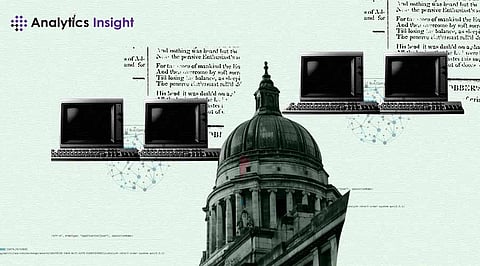

In recent years, governments worldwide have increasingly recognized the pivotal role of data in informed decision-making, policy shaping, and citizen services. The advent of data science has ushered in a revolutionary era for governance, providing powerful tools for data-driven decisions, predictive analytics, performance assessment, and policy evaluation. This article explores the diverse applications of data science in critical areas such as healthcare, education, economic development, transportation, criminal justice, environmental policy, and social services.
Data science has emerged as a linchpin in modern governance, transforming key sectors with its analytical prowess. In the arena of economic development, governments are harnessing data science to dissect economic trends, identify growth opportunities, and formulate policies that propel sustainable progress. Predictive modeling aids in comprehending market dynamics, enabling governments to make well-informed decisions that stimulate economic growth. This data-driven approach not only enhances efficiency but also empowers authorities to proactively address challenges, laying the groundwork for resilient and thriving economies.
In criminal justice reform, data science plays a pivotal role through predictive policing, recidivism analysis, and resource optimization. This technological integration offers a more nuanced and equitable approach to law enforcement. By implementing data-driven policies, governments not only improve public safety but also foster positive community relations. The use of objective data minimizes biases, ensuring that law enforcement strategies are not only more effective but also fair, contributing to a justice system that is responsive to the needs of diverse communities.
Environmental policy has also undergone a transformation with the incorporation of data science. Governments leverage data analytics to monitor environmental changes, evaluate policy impacts, and devise sustainable practices. Predictive modeling allows authorities to anticipate environmental challenges, facilitating proactive intervention and conservation efforts. This data-centric approach aligns environmental policies with real-world needs, fostering a more resilient and ecologically sustainable future. Whether in transportation, healthcare, social services, or education, the transformative influence of data science is evident, reshaping governance for a more efficient and citizen-centric future.
The integration of data science into governance yields numerous benefits. Increased efficiency, transparency, and innovation are at the forefront. Data-driven decision-making leads to more effective resource allocation, streamlined processes, and improved service delivery. Transparency is enhanced as citizens gain access to information and understand the rationale behind policy decisions. Innovation thrives as governments leverage data for creative problem-solving and responsive governance.
Furthermore, data-driven policies contribute to evidence-based decision-making, reducing political bias and promoting sustainability. By relying on objective data, governments can create policies that are more likely to succeed and address the real needs of the population.
Despite the numerous advantages, challenges must be addressed to ensure responsible and ethical use of data in governance. Privacy concerns, data quality, the digital divide, and cybersecurity are prominent issues. Governments must establish robust frameworks for data protection, invest in data quality assurance measures, bridge the digital divide to ensure equitable access, and strengthen cybersecurity protocols to safeguard sensitive information.
In conclusion, data science is fundamentally transforming governance into a more efficient, transparent, and responsive entity. As the digital age progresses, data science will play a crucial role in shaping the future of government and public policy. Striking a balance between the benefits and challenges, governments can harness the power of data science to create a more effective and citizen-focused public sector. Through evidence-based decision-making, innovation, and transparency, data science paves the way for a future where governance is not only data-driven but also accountable and responsive to the diverse needs of its citizens.
Join our WhatsApp Channel to get the latest news, exclusives and videos on WhatsApp
_____________
Disclaimer: Analytics Insight does not provide financial advice or guidance. Also note that the cryptocurrencies mentioned/listed on the website could potentially be scams, i.e. designed to induce you to invest financial resources that may be lost forever and not be recoverable once investments are made. You are responsible for conducting your own research (DYOR) before making any investments. Read more here.
